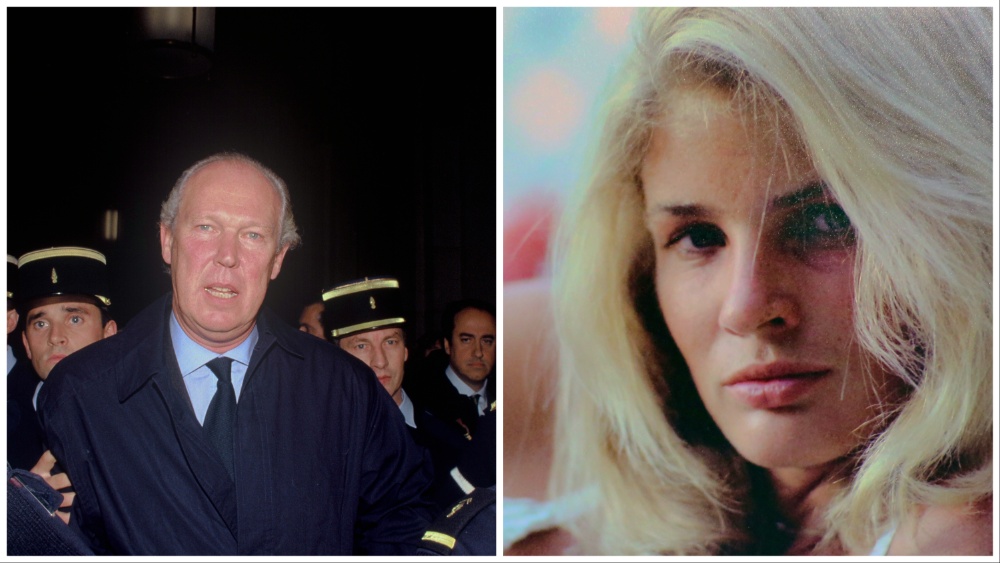
Unlike in the U.K., Spain and Sweden — where kings and queens are still formally heads of state — Italy’s royal family, the House of Savoy, no longer rules.
The last heir to the Italian throne, Vittorio Emanuele of Savoy and his family were forced into exile in 1946, when the prince was 9. That year, the Italian people voted in a referendum about whether the monarchy should continue. They chose to create a republic and punished the royals for failing to save their country from Mussolini’s fascist regime. The Savoys were allowed to return in 2003 after 57 years of exile.
In 1978, Vittorio Emanuele – the king who never was – got into trouble while he and his wife and kids were living on the island of Cavallo, on the south coast of Corsica, France. As reconstructed from eyewitness interviews in a new Netflix documentary, on a hot August night he became enraged when some loud “shitty Italians” “borrowed” the dinghy off his yacht and tied it to another nearby boat. Fuming, he took a rifle, went to one of their boats and, after shots from his rifle rang out – that were just meant to scare – someone got hurt. Dirk Hamer, a 19-year-old sleeping on another boat nearby, died of gunshot injuries in early December. Though it was never legally proven that Vittorio Emanuele killed Hamer, this incident had a big impact on the prince’s life.
It also shaped the life of Hamer’s sister, Birgit Hamer, who later became a supermodel and fought for three decades to no avail for justice to be served amid what appears to have been a massive cover-up.
Variety spoke to “The King Who Never Was” director Beatrice Borromeo, an Italian journalist who was also personally affected by the incident, about how she managed to meticulously reconstruct what happened that night. Watch the trailer for the docuseries, streaming on Netflix now, above.
Simply put: what drove you to want to delve deep into this case after so many years?
It’s a story that I’ve always been personally involved in. My mother has always been a close friend of Birgit Hamer. She’s been involved in various phases Birgit’s life, including organizing Dirk’s funeral, that is shown in the documentary. That said, this was not an easy story to tackle and bring to the fore. There was always this feeling of: “Enough with this! It’s too old, you are becoming obsessed!”
I remember how frustrated I was as a child hearing the reasons why we should all look the other way. Later in my life, when I was a journalist for Italian daily Il Fatto Quotidiano, I probably became too obsessed with this case. I wrote some pretty aggressive articles that lacked the necessary balance that I think I have now found in this documentary series
Given your previous reporting, it’s quite surprising how available Vittorio Emanuele made himself and how candidly he speaks. How did you manage that?
It took me ages to convince him to be part of the doc. Creating a rapport with Vittorio Emanuele was probably the hardest part of this project. He had sued me after I had published a video of his [alleged] confession. It was a long legal battle that I eventually won. We had a terrible rapport. I started contacting everyone I knew who had a rapport with him. I bombarded him with emails and letters. So, exasperated, he said: “talk to my son, Emanuele Filiberto.” I think Emanuele decided to participate in order to face this story once and for all, so that it would not taint his daughters, the way it had tainted him. And then he became a bridgehead with his father and the whole family.
All that said, Dirk Hamer’s murder remains unpunished. Could this doc reopen the case?
No, the statute of limitations across Europe has run out. But I think we are beyond that all the way around. Even Birgit Hamer is no longer asking for a trial. She just wants truth to be known. I think with this documentary, people will have all the elements to form their own opinion. That’s what I tried very hard to do. I think there has now been a deep closure about this incident on everyone’s part.
Ultimately, the doc is about the privilege of being born as royalty. Do you agree?
I don’t think that privilege is the same today as it was then. The doc is about a system of power that, at the time, was dominant and about how justice and truth can be manipulated thanks to connections and money and determination to shun responsibility. The system protected Vittorio Emanuele. Evidence against him disappeared; legal opinions changed; a judge was transferred to Tahiti while he was investigating. Though he was in exile, in some way he still had power. Whether it was his royal connections or Italy’s P2 Masonic Lodge or his rapport with the Shah of Iran. It’s hard to say. There was a circle around him that protected him.
Perhaps, more specifically, it’s about what can happen when you are born into royalty and then that destiny is taken away from you at a young age.
Yes. It was very important to provide the historical context of Vittorio Emanuele’s “exile.” His frustration toward a bunch of Italians who make fun of him, steal his dinghy. The way he reacts to this, with a rifle, I think stems from the broken identity of a child who, up until he was 9 years old, attends parades in his honor on the part of Italians who subsequently kick him out and don’t allow him back in their country, and hate him. When you see him return to Italy [in 2003], he is chasing a life that he could have had but is no longer possible.














